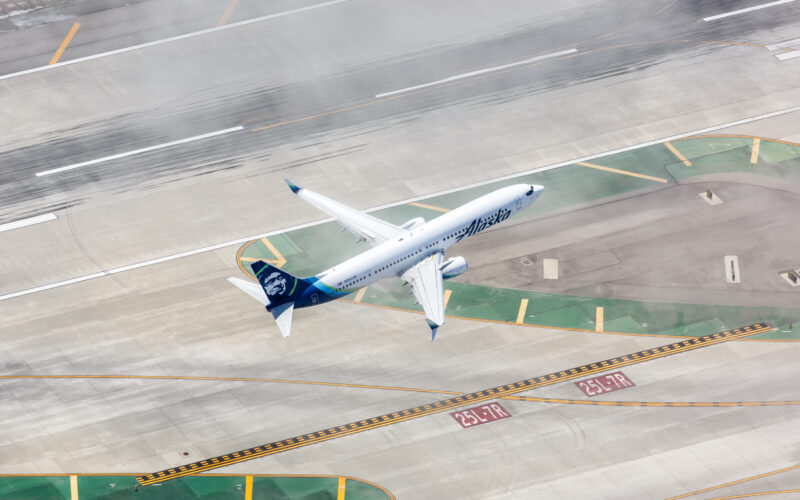An Alaska Airlines flight from Minneapolis, Minnesota to Anchorage, Alaska became chaotic when a passenger emerged from the bathroom foaming at the mouth and had to be sedated after assaulting crew members.
According to an affidavit filed by a prosecutor with the United States District Court for the District of Alaska, the 37-year-old man was heard screaming in the bathroom. He then punched the door open and began heading towards the cockpit at the back of the Boeing 737 jet “with drool and foam coming from his mouth”.
A flight attendant managed to block the man and an off-duty nurse suggested administering Narcan, a medication typically used to treat drug overdoses, albeit in a low dose.
In response to the opioid epidemic, the Association of Flight Attendants (AFA) issued a request to the Federal Aviation Administration (FAA) in February 2018 requiring airlines to carry opioid blockers on passenger flights. It is now one of the mandatory drugs included in the Emergency Medical Kit each airline must carry.
However, the man “denied consuming any alcohol or medication or having any medical issues” and started resisting, trying to punch and push people, the affidavit continued.
When interviewed by law enforcement after Alaska Airlines Flight 183 had landed, the man said he had been experiencing vertigo and had consumed three gummies containing Hexahydro cannabinol (HHC) prior to the flight, which he believed could have caused an extreme reaction.
Nevertheless, he was unable to explain the presence of a piece of foil containing a “white powdery substance”, the crew found in his pocket.
It is still not clear how the man was cleared by airport security while carrying the unidentified powder. However, since June 1, 2023, Minneapolis–Saint Paul International Airport (MSP) has been rolling out a new feature that allows passengers to skip the security lines.
The violent passenger currently faces charges for simple assault within the maritime and territorial jurisdiction, application of certain criminal laws to acts on aircraft, and interfering with flight attendants, which carry a maximum sentence of 20 years’ imprisonment.

